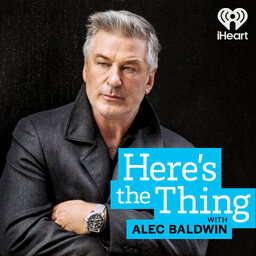Ken Auletta: There’s More to Learn About Harvey
Author Ken Auletta has been the chief political correspondent for the New York Post, a weekly columnist for the Village Voice, contributing editor at New York magazine and contributor to The New Yorker since 1977. He is the author of twelve books, including five national bestsellers —Three Blind Mice: How the TV Networks Lost Their Way; Greed and Glory On Wall Street: The Fall of the House of Lehman; The Highwaymen: Warriors of the Information Superhighway; World War 3.0: Microsoft and Its Enemies; and Googled: The End of the World as We Know It. His latest book, Hollywood Ending: Harvey Weinstein and the Culture of Silence, serves as a biography, an examination of the circumstances that led to the abuses and the final chapter of Auletta’s reporting on Weinstein that began with a New Yorker profile two decades ago. Ken Auletta and Alec discuss Auletta’s upbringing in Coney Island, his early career in politics and the culture of Weinstein’s many enablers.
In 1 playlist(s)
Here's The Thing with Alec Baldwin
Award-winning actor Alec Baldwin takes listeners into the lives of artists, policy makers and perfor…Social links
Follow podcast
Recent clips

From the Archives: John Dean
57:49

The Phonographic Memory of Marc Shaiman
50:43

Here's The Thing: Trailer
01:41
 Here's The Thing with Alec Baldwin
Here's The Thing with Alec Baldwin